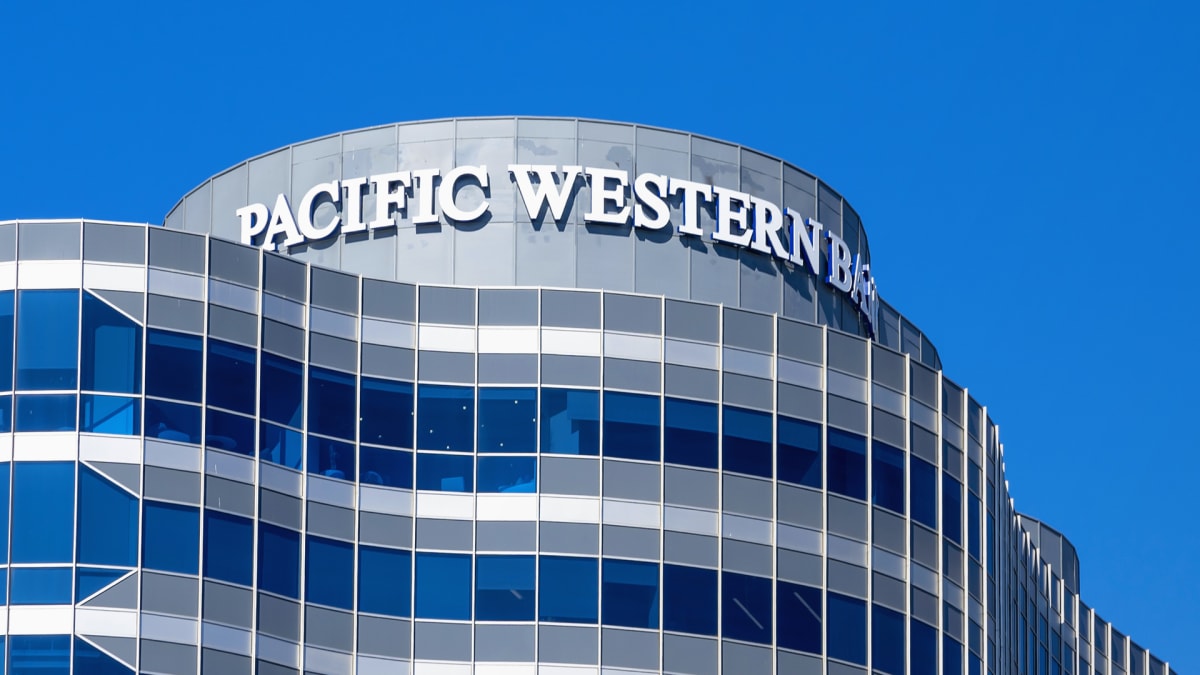
PacWest Bancorp. (PACW) on Monday extended its recent rally after the struggling Los Angeles lender slashed its quarterly dividend to preserve cash and bolster its balance sheet.
In a late Friday update, PacWest said it would payout a dividend of one penny per common share, down from a prior level of 25 cents, citing current economic uncertainty, recent volatility in the banking sector and potential changes in regulatory capital requirements.
The bank confirmed reports last week that it wa in talks with potential partners amid a broad study of strategic alternatives, which could include a fresh capital increase or the breakup of its Pacific Western Bank franchise from its other consumer and commercial lending businesses.
PacWest scrapped plans to raise capital in March, as bank stocks were pummeled in the wake of the Silicon Valley Bank collapse, and noted last week that 75% of its total $28.2 billion deposit base fell within the FDIC's protection threshold.
"Our business remains fundamentally sound, and we will continue with our strategy to focus on our relationship-based community banking model,” CEO Paul Taylor said late Friday.
PacWest shares, which soared 82% on Friday, at last check were marked another 1.3% higher at $5.84 each. They've traded on Monday as high as $7.50, up 30%.
The KBW Regional Banking index, however, was marked 2.3% lower at 80.51, pegging its 2023 decline at more than 29%.
Regional Bank Stocks Have Rallied
Regional bank stocks have rallied hard since the Fed late Thursday published data indicating that most of the lending from its emergency facilities was directed toward First Republic prior to its sale to JPMorgan Chase late last month.
Banks borrowed just $5.3 billion from the Fed's main discount window over the seven-day period ended on May 3, according to Fed data, down from the $73.9 billion handed out over the prior period.
The bulk of that decline, however, was linked to a change in allocation of borrowing from First Republic Bank, which was sold to JPMorgan Chase (JPM) last Sunday. First Republic's borrowing's were labeled as "other credit," with that tally rising by around 34% to $228.2 billion.
Borrowing from the Fed's new Bank Term Funding Program, which allows banks to exchange high-quality assets for one-year loans, fell by $5.5 billion to $75.8 billion.
Get investment guidance from trusted portfolio managers without the management fees. Sign up for Action Alerts PLUS now.







